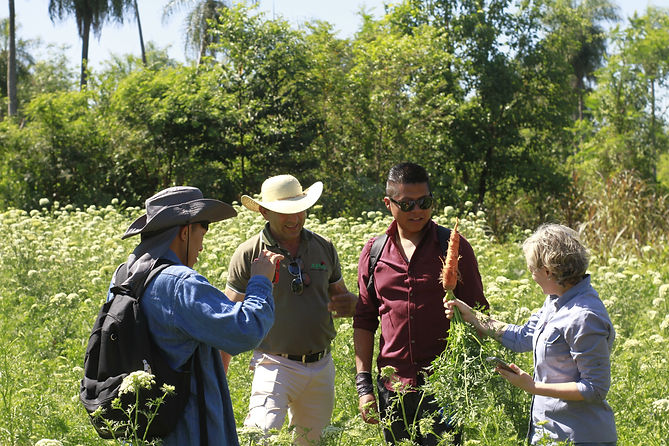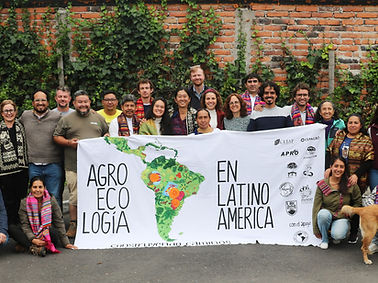
Projects
LiteFarm se utiliza como herramienta de investigación, recopilación de datos y
visualización en múltiples proyectos globales de sostenibilidad agrícola. Los datos recolectados por agricultores y socios de investigación apoyan la investigación participativa y colaborativa sobre agroecología y agroecosistemas diversificados, tecnologías agrícolas de código abierto y bienes digitales públicos, resiliencia climática, y justicia social y ecológica en los sistemas agrícolas.



Agroecology in Latin America
The Agroecology in Latin America Project : Building Paths is a Participatory Research-Action that aims to understand, through indicators, the social, environmental and economic impacts of Agroecology, in order to contribute to the construction of agroecological knowledge, the development of public policies, and the elaboration of materials and projects that promote agroecological transitions and support family farmers in the management of their production units based on clear, consistent and evidenced information.
The project has been developed since 2020, through international cooperation, by a network of 10 organizations in 7 Latin American countries and has the participation of more than 313 farming families who are at different stages of the agroecological transition.These families have been sharing information about managing their properties through LiteFarm.
Project Steering Committee:
-
Association of Organic Producers – APRO (Paraguay)
-
Asociación Vivamos Mejor (Guatemala)
-
Cepagro (Santa Catarina, Brazil)
-
Campesino Center AC (Mexico)
-
CETAP (Rio Grande do Sul, Brazil)
-
Corporación Buen Ambiente – Corambiente (Colombia)
-
Patrons of Life Movement (Bahia, Brazil)
-
Fundesyram (El Salvador)
-
Movimiento de Economía Social y Solidaria del Ecuador (Ecuador)
-
Tijtoca Nemiliztli Network (Mexico)
Agroecology4Climate
Agroecology for Climate Adaptation and Mitigation (Ag4C), focuses on researching agroecological transitions across Canada, India, Brazil and Germany. Agroecological transitions are defined as the intentional diversification of farming landscapes in collaboration with social movements and networks to create landscapes that foster dignified work, conservation of biodiversity, and mitigation of and adaptation to climate change. We particularly focus on transitions to diversified perennial systems. The project kicked off in September of 2024 with a gathering of researchers and community partners in Brandenburg, Germany and Kerala, India. The project will unfold through the next three years, collecting and analyzing soil field samples, conducting interviews and analyzing surveys.



.jpg)
Organic Science Clusters Canada
OSC4 research activities are priority-driven, Canada-wide studies advancing scientific knowledge and providing practical and economically viable solutions in five categories:
-
Environment: Enhancing soil health, water conservation, and biodiversity through validated practices.
-
Field Crops: Optimizing productivity and sustainability in field crop production.
-
Horticulture: Advancing ecosystems-based vegetable and fruit production.
-
Livestock: Improving animal health and increasing resilience of crop-livestock systems.
-
Pest Management: Developing integrated pest management strategies.
Smart Irrigation
The Smart Irrigation project is carried out in collaboration with Farming Smarter and Ensemble Scientific.
This project is a one of its kind initiative that aims to improve water management and support informed decision-making in regions predominantly dependent on irrigation. By integrating real-time soil moisture, weather, crop, and soil data an irrigation plan is generated that scientifically addresses "when" and "how much" to water. This approach gives a scientific basis to irrigation because it takes the crop needs into account and prevents overwatering or underwatering.
This solution is expected to reduce manual effort, minimizes water wastage, and enables farmers to optimize irrigation scheduling for healthier crops and more sustainable resource use. This project is live in pilot farms in Southern Alberta.
.jpeg)

Interoperability

